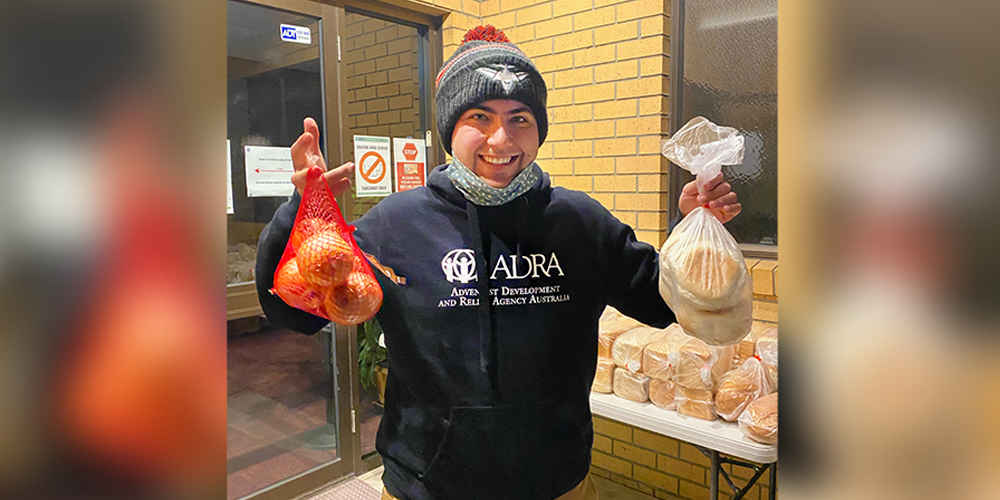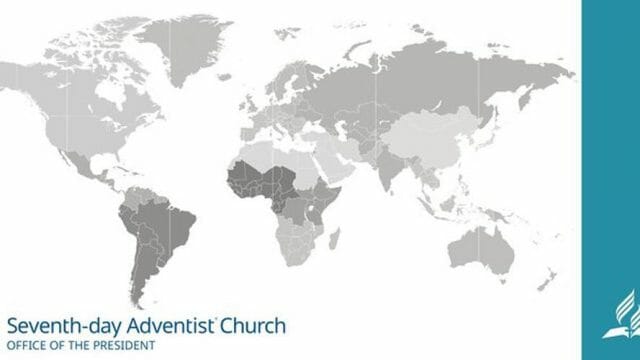These days, sharing the gospel may require a more inclusive approach to evangelism.

The point of difference between Christianity and many other major religions is the aspect of grace. Grace is the ultimate gift from God. It is not the result of anything we have done to earn it; rather, it has been given freely (Eph. 2:8, 9). We know that nothing we do can save us but that we have salvation and identity in Christ (John 3:16; Eph. 1:3-14).
What a beautiful gift! Jesus died for our sins, and when we accept Him as our Lord and Savior, we are made right with God and seen as holy and blameless in His sight (Col. 1:22). This is the Good News!
As Christians, we have been given the task of sharing the good news with the world so that everyone may experience the gift of God’s grace (Matt. 28:19, 20). It is one of our greatest callings as followers of Christ. But it is not the only task God has entrusted us with.
I enjoy a good checklist. And it would seem I am not alone. As stated by the church, “Seventh-day Adventists accept the Bible as their only creed and hold certain fundamental beliefs to be the teaching of the Holy Scriptures.” And while we hold the entire Bible as our source of truth, even Seventh-day Adventist theologians saw the need for a summarized understanding of the Bible. We have the 28 fundamental beliefs, statements that constitute the church’s understanding and expression of the teaching of Scripture.
Similarly, throughout Scripture, we have received lists, commands, and teachings on the best way to live our lives in step with Christ. But to simplify it further, when asked what the greatest commandment is, Jesus replies: “ ‘Love the Lord your God with all your heart and with all your soul and with all your mind and with all your strength.’ [This is the first commandment.] The second is this: ‘Love your neighbor as yourself.’ There is no commandment greater than these” (Mark 12:30, 31, NIV).
Tangibly, what does it mean to love the Lord with everything we have? And what does it mean to love our neighbor?
As Christians, this comes back to the great commission — to go out into the world and to spread the good news about Jesus Christ. What greater love can there be for God and others but by sharing the good news and introducing others to Christ?
And yet, more and more, we are discovering that the secular world is not interested in this message. But sharing the good news is not the only way to love our neighbor. The Bible describes the many tangible ways we are to love our neighbor. And in His divine wisdom, God saw that by loving our neighbor, we are often able to share the good news.
First John 3:18 states, “Dear children, let us not love with words or speech but with actions and in truth” (NIV). Similarly, Matthew 25 paints a beautiful picture of what it means to serve others. We learn that by meeting people’s physical needs and loving them with our actions, not just our words, we are serving not only our neighbor; we are also serving God. Likewise, the apostle James highlights the same concept when he says, “Suppose a brother or a sister is without clothes and daily food. If one of you says to them, ‘Go in peace; keep warm and well fed,’ but does nothing about their physical needs, what good is it? In the same way, faith by itself, if it is not accompanied by action, is dead” (James 2:15, 16).
We are being called by God not just to believe in Him but also to spread the good news and love people along the way. After all, is that not how Jesus Himself did it? He met people where they were: in their homes, at the well, lying by the side of the road. And He ministered to these people by teaching, healing, and serving.
Seventh-day Adventist churches have been partnering with the Adventist Development and Relief Agency (ADRA) in Australia across the country to minister to people in this exact way. Members have been running ADRA community outreach programs such as food pantries and thrift shops to serve their community. And, by getting involved with their community, they are able to share their faith through their actions.
“I was once told at college to preach and, if necessary, use words,” Josh Stadnik, intern pastor at Dandenong Polish Seventh-day Adventist Church in Dandenong, Victoria, said. “With the ADRA kitchen, I’ve been able to live out this motto and see kingdom work in action. Hope is offered, and lives are changed for the better. Both with the community and our church members.”
This message of loving others couldn’t be more needed than right now. “In terms of declaring God in a secular society, genuine Christian living is our best tool, maybe even our only hope,” Simon Gigliotti, Greater Sydney Conference youth director, said. “I am by no means saying there is no room for proclamation. What I am saying, however, is that no one wants to listen to a proclamation from people who do not live what they proclaim, as 1 Corinthians 13:1-13 and Micah 6:8 reminds us.” Gary Krause, director of Adventist Mission for the world Adventist Church, paraphrased this concept very well when he said, “The church only has two purposes — to enlarge God’s kingdom and to benefit the world.”
In this way, our actions of love will show the love of God. John 13:34, 35 states, “A new command I give you: Love one another. As I have loved you, so you must love one another. By this everyone will know that you are my disciples, if you love one another” (NIV).
So, what does it look like to be saved by grace? It means exactly what it sounds like. We are saved by the grace of God, and if we accept Jesus as our Lord and Savior, nothing we do can take away that gift. But God wants us to be motivated by love. One way we can praise Him and thank Him for this priceless gift is by pouring out His love to others.
The original version of this commentary was posted by Adventist Record.








